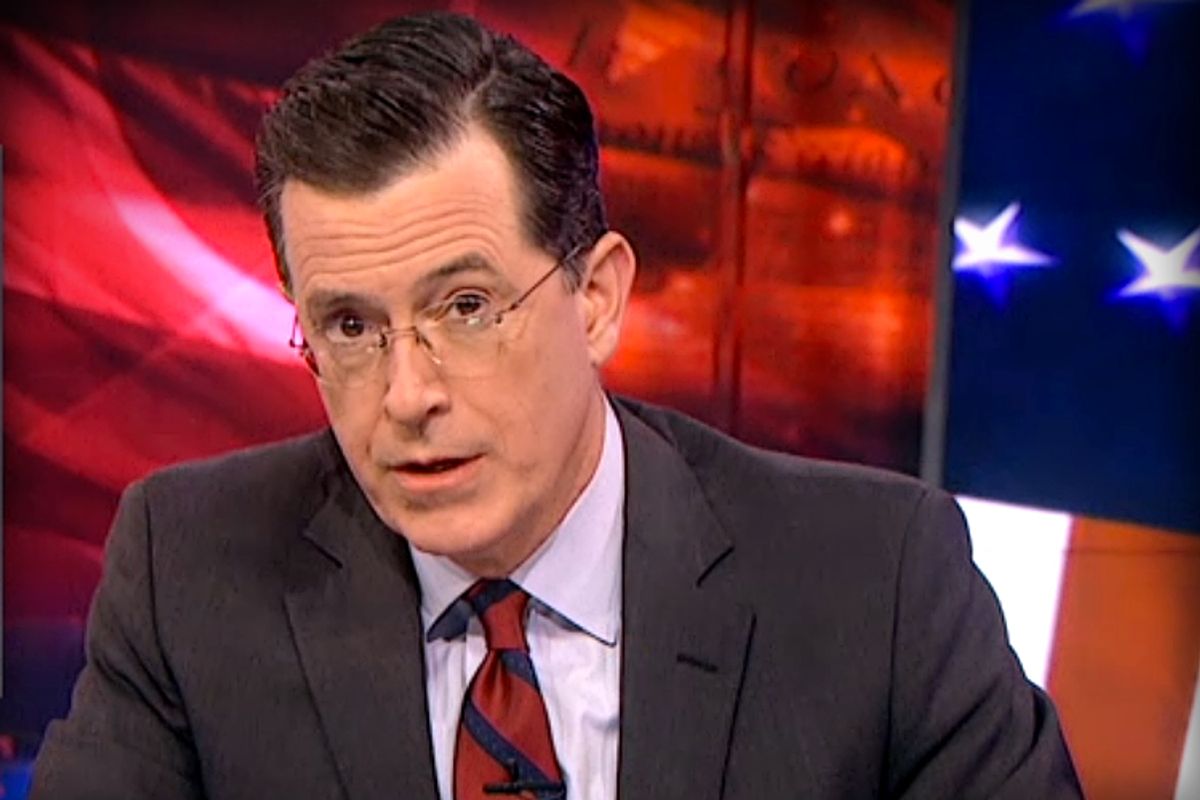Feel whatever you'd like about #CancelColbert (Brittney Cooper's take is well worth your time), but those in the camp defending a television host's (failed) attempt to satirize racism may want to ask themselves why they aren't equally outraged by the racism and misogyny being hurled at the woman behind the conversation.
Suey Park is a writer and activist, but follow most of the conversation around #CancelColbert and you will read that she is a "hashtag activist" -- a coded bit of language meant to communicate that she is not a person who should be taken seriously. (Follow what's going on in Park's Twitter mentions and you will see that a frightening number of people believe much worse.)
HuffPost Live invited Park to do a segment Friday morning, but rather than discuss what makes for good satire or mention the racist and misogynistic responses Park received (and tweeted about) while trending the hashtag, host Josh Zepps asked her if she understood comedy and called her opinions "stupid." After a tense exchange with Zepps, Park said that she was done -- that she wasn't going to entertain inquiries about her intelligence or motives when the question of racism was not being taken seriously. Zepps seemed all too happy to oblige; he said a chipper goodbye and promptly cut her feed, prompting W. Kamau Bell to tweet that Zepps "reigns down the full weight of his #WhitePrivilege" during the segment.
Dave Weigel, who was critical of the hashtag from the start, weighed in at Slate to insinuate Park is somehow bullying Comedy Central -- a television behemoth owned by a media behemoth -- and question her activist bona fides:
The network had made a powerful hashtag enemy, as Park reminded it. This was her work. She started hashtags like Comedy Central started six-episode sketch shows. The Guardian had placed her in a list of the "top 30 young people in digital media," No. 12, right below "Kid President." Her Facebook fan page and Twitter account provided information on how to book her, because she "speaks on race/gender and social media" and is a "board member of Activist Milennials."
He also seemed comfortable parroting a common right-wing cop-out, suggesting that when you bring the word "racist" into a conversation, it's no longer a conversation -- it's a knife fight:
As [hashtag activists] explained in 140-character bursts, when a white comedian like Colbert joked about racism by playing a racist, he was still telling his audience to laugh at a racist joke. Anyone who disputed this was trying to "whitesplain" satire—an argument that can never be debunked. You can laugh at being told to "check your privilege," but hearing that plants an idea that you can't shake. (This is not necessarily a bad thing, even though this particular hashtag was born midair above a shark.) And if it brings fame and clout to activists who have not really done anything to win your attention previously, that's a sweet fringe benefit.
Weigel is free to disagree with Park, but to question her legitimacy because she has different credentials than he does is plainly offensive. And it's uncomfortable, put mildly, to see an established white male journalist suggest that an activist and writer of color hasn't "done anything" to "win your attention."
I don't know Park personally, but I'm aware of and follow her work -- she didn't drop from the sky Thursday night. She is getting covered on Salon, Slate and other mainstream outlets today because her hashtag trended and caught the attention of audiences who watch and like "The Colbert Report." Just because this public isn't aware of Park's work doesn't mean it doesn't exist or have value. Any suggestion otherwise is ignorant.
With all of the time we've spent attacking Park's credibility and debating the value of online activism, there seems to be shockingly little interest in the content of her work -- in the questions she's raised about liberal racism, white racism, the cultural quickness to dismiss women as "hysterical" or "attention-seeking" in voicing their anger, our discomfort with seeing our sacred cows criticized when they fail. Reading back on the hashtag this morning, I saw a lot reflecting the glaring whiteness of the television writer's room, and how people who resist being victimized by racist tropes (even when intended as satire) are dismissed as hypersensitive and often attacked with even more racism.
I'm grateful again here for Cooper's insights on the hashtag and the response it has generated: "Solidarity is rarely simple, but choosing not to minimize someone else’s struggle is quite easy."
Why are we so unwilling to concede that Colbert's failed attempt at satire may be a product of the (majority) white men who write the show? That the backlash against Park may be an ugly manifestation of liberal racism? That the response to #CancelColbert is telling us something important about how we're still failing to meaningfully address racism -- even in progressive circles?
Even with the hashtag trending fiercely Thursday night, it was and remains wildly unlikely that #CancelColbert will actually get "The Colbert Report" taken off the air. And like many others who have weighed in on the issue, I like a lot of Stephen Colbert's work and have seen his show hit its intended targets much better than it did this week in its attempt to critique Dan Snyder's racism. But that's not a reason to ignore a call to take a hard look at where the show failed, or how we failed with it.
I mean, Colbert's writing staff still looks like this. We need to talk about that. Why are we so mad when someone asks us to talk about that?

Shares